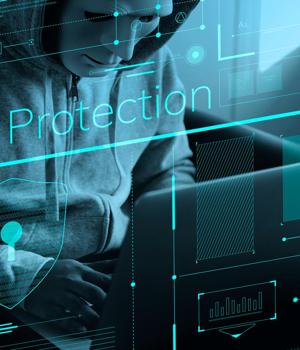Security News > 2002 > September > Anonymizer privacy claim: A case of 'buyer beware'?

http://www.computerworld.com/securitytopics/security/privacy/story/0,10801,74397,00.html By PATRICK THIBODEAU SEPTEMBER 19, 2002 WASHINGTON -- IT managers who want to control workplace Internet use have a new adversary: a San Diego-based company that makes it possible for people to surf anonymously. Anonymizer Inc. last month released a new version of its product, Private Surfing 2.0, and coupled it with a bold marketing claim: "Surf at work without being monitored." Yes, dear IT manager, your employees are being encouraged to pay $29.95 annually to circumvent your systems. But the message to surf-happy employees ought to be "buyer beware." No sooner had Anonymizer begun its marketing campaign than Orange, Calif.-based 8e6 Technologies Inc. (a takeoff of the slang expression 86ed), announced a simple library update to thwart Anonymizer. Another security and filtering company, St. Bernard Software Inc. in San Diego, said it didn't even have to make changes to preempt Anonymizer's claim. IT managers such as Harold Moscho, director of technology management at MultiCare Health System in Tacoma, Wash., where he has 6,000 users, are nonetheless concerned by the development. "I hope that it is not something that is very widespread," said Moscho, who is using 8e6's filtering technology. He says he fears that Anonymizer may be appealing to people "who have a great deal of desire for vengeful or mischievous" behavior. Users of Anonymizer surf the Internet through the company's network. End users log on via their Web browser and get IP addresses and domain names that can't be traced back to them. The filtering services are thwarting employees by blocking access to Anonymizer.com. And if the connection is encrypted, 8e6 will time out, or cut off an encrypted link, said Mark Parker, a senior engineer at 8e6. When questioned about its claims, an Anonymizer official downplayed its workplace surfing marketing claims. "We're not really pushing the surfing at work," said Lance Cottrell, the company's president and founder, who acknowledged that employers can use a range of techniques, such as monitors to record keystrokes, to otherwise track employee Internet use. Moreover, Anonymizer says it isn't planning to use the same aggressive techniques it uses in China to get around government-sponsored filtering, such as a continuously changing array of IP addresses and domain names. Anonymizer is working both sides of the fence. At the same time it appeals to employees, the privately held company is also appealing to employers. Cottrell cited a growing number of corporate and law enforcement organizations that need to surf anonymously, such as the FBI, companies engaged in competitive intelligence, law firms and law enforcers. Another key market: home users who want to avoid being tracked by network advertisers and others. Patrick O'Donnell, senior systems specialist at Paulo Products Co., a St. Louis-based metal finishing company, installed St. Bernard's filtering software after a temporary employee downloaded a virus. With monitoring tools, O'Donnell says that he doesn't believe that employees can easily escape detection. But he also wonders why anyone would risk violating company policy on Internet use. "If someone wants to risk being unemployed at this time of year. . . ," he said. - ISN is currently hosted by Attrition.org To unsubscribe email majordomo () attrition org with 'unsubscribe isn' in the BODY of the mail.
News URL
http://www.computerworld.com/securitytopics/security/privacy/story/0,10801,74397,00.html